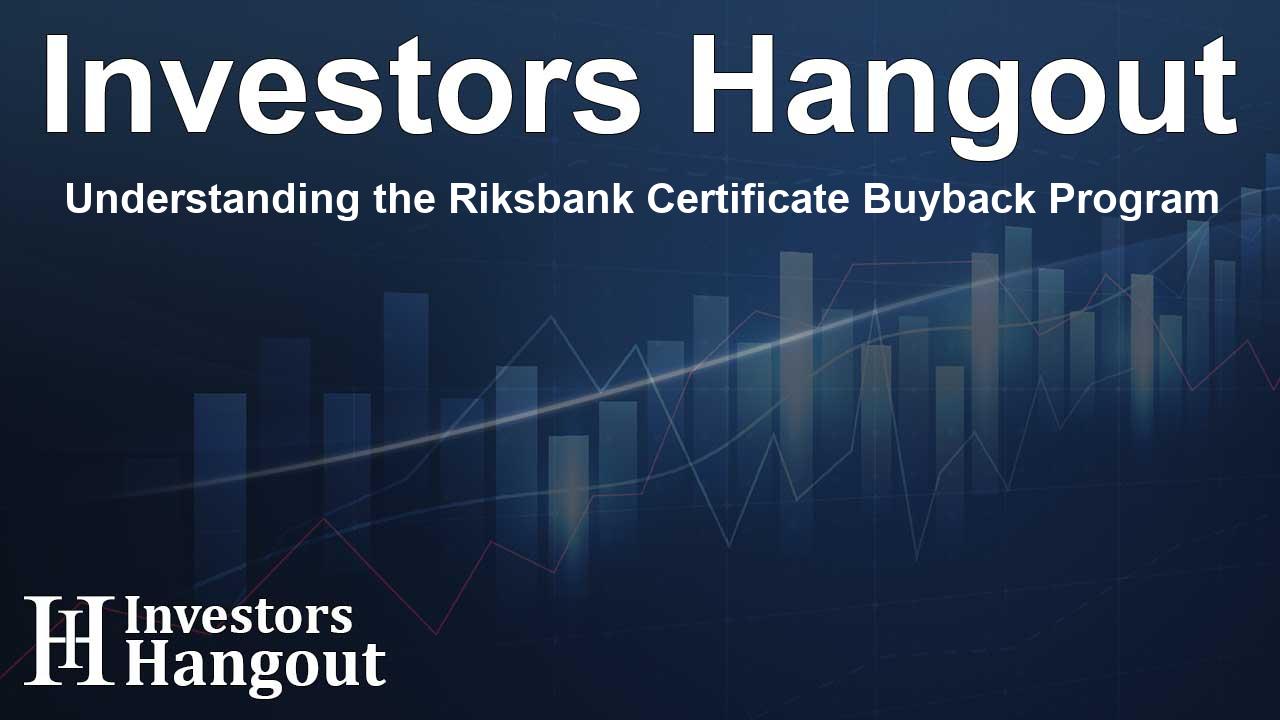Understanding the Riksbank Certificate Buyback Program

Understanding the Riksbank Certificate Buyback Program
The Riksbank recently announced a significant buyback program for its certificates, highlighting the commitment to manage monetary policy effectively. This move is aimed at encouraging stability in the financial markets and maintaining optimal liquidity.
Key Aspects of the Buyback
The Riksbank's buyback initiative is characterized by several essential factors. One of the notable aspects is the certificate maturity set for 251015. This maturity date is crucial for investors as it defines when they can expect their investments to mature and generate returns.
Fixed Rate Determination
The fixed rate offered in this buyback is 1.85%. This is determined based on the steering rate plus an additional 10 basis points (b.p.). For investors, this fixed rate is an attractive aspect, providing a reliable return from the investment without any fluctuation in interest rates during the period leading up to maturity.
Volume and Trade Days
A remarkable volume of 15.5 billion has been bought back, underscoring the Riksbank's intent to inject liquidity into the market. This substantial volume reflects the bank's confidence in stabilizing the economy and enhancing investor trust.
Understanding the Trading and Settlement Timeline
The trade day for this buyback program was set for 251008, which is the day on which the buyback transactions were executed. Following that, the settlement day occurred on 251009, marking the time when the transactions were finalized, and funds were transferred. These timelines are crucial for investors to plan their financial activities and understand the flow of transactions.
Conclusion
The Riksbank's buyback program is an important element of its monetary policy strategy. By effectively managing its certificates, it aims to promote a healthy economic environment and support financial stability. Investors interested in this buyback should closely monitor these developments, as they can have significant implications for their investment strategies and the broader financial landscape.
Frequently Asked Questions
What is a Riksbank certificate?
A Riksbank certificate is a financial instrument issued by the Riksbank to manage liquidity and stabilize the monetary system.
How does the buyback program work?
The buyback program allows the Riksbank to repurchase its certificates from investors, injecting liquidity and stabilizing the financial market.
What is the significance of the fixed rate?
The fixed rate of 1.85% offers investors a predictable return over the term of the certificate, minimizing risk compared to variable rates.
What was the total volume involved in the buyback?
The buyback involved a substantial volume of 15.5 billion, illustrating the Riksbank's efforts to manage liquidity effectively.
When were the trade and settlement days?
The trade day was on 251008, and the settlement day followed on 251009, marking the execution and finalization of the transactions.
About The Author
Contact Kelly Martin privately here. Or send an email with ATTN: Kelly Martin as the subject to contact@investorshangout.com.
About Investors Hangout
Investors Hangout is a leading online stock forum for financial discussion and learning, offering a wide range of free tools and resources. It draws in traders of all levels, who exchange market knowledge, investigate trading tactics, and keep an eye on industry developments in real time. Featuring financial articles, stock message boards, quotes, charts, company profiles, and live news updates. Through cooperative learning and a wealth of informational resources, it helps users from novices creating their first portfolios to experts honing their techniques. Join Investors Hangout today: https://investorshangout.com/
The content of this article is based on factual, publicly available information and does not represent legal, financial, or investment advice. Investors Hangout does not offer financial advice, and the author is not a licensed financial advisor. Consult a qualified advisor before making any financial or investment decisions based on this article. This article should not be considered advice to purchase, sell, or hold any securities or other investments. If any of the material provided here is inaccurate, please contact us for corrections.
